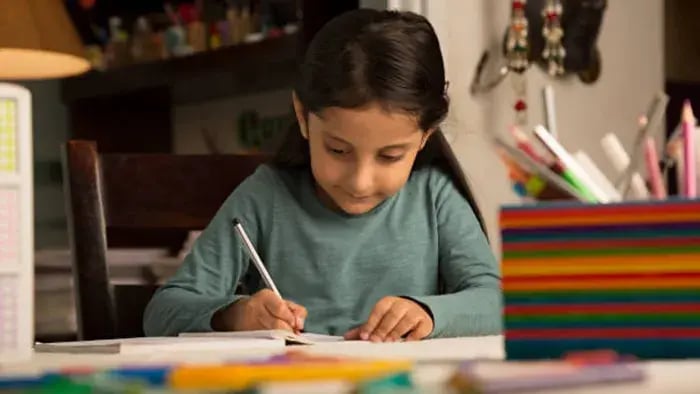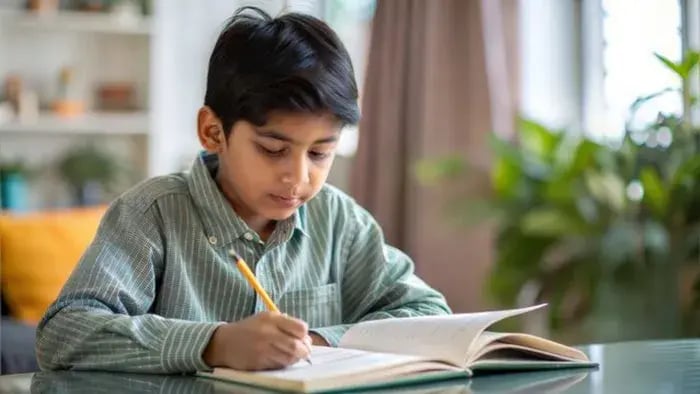- Boosting Active Recall
- Improving Concentration Levels
- Encouraging Curiosity and Exploration
- Strengthening Problem-Solving Skills
- Building Confidence in Knowledge
- Enhancing Long-Term Retention
- Making Learning Fun and Stress-Free
Introduction

General knowledge questions have a special way of engaging kids. They make kids think fast, recall information, and connect different subjects. This sharpens memory and builds focus as kids learn to pay attention to details while answering. Unlike regular lessons, which can feel repetitive, GK questions bring freshness and variety to learning and make it more enjoyable and effective.
Each question is like a small puzzle, making kids use logic and reasoning. Over time, this habit builds mental alertness and problem-solving skills. Kids become more attentive in their studies as regular quizzing trains the brain to concentrate better. The challenge of recalling facts also boosts confidence as kids realize their memory is stronger than they think.
Another advantage of GK activities is that they spark curiosity. A single question can open doors to new areas of knowledge, science, history, or geography. This curiosity keeps kids motivated to explore further and creates a positive cycle of learning. For parents, introducing GK sessions at home or during playtime can be an easy and impactful way to support cognitive growth. Small steps like this help kids develop sharper memory, better focus, and a love for continuous learning.
7 Ways How GK Questions Strengthen Memory and Attention

Children’s brains are like sponges, absorbing knowledge from every corner of their environment. General knowledge (GK) questions are one of the simplest yet most powerful ways to channel this curiosity into meaningful learning. They encourage children to recall information, make connections, and think critically. Unlike routine study sessions, GK quizzes feel like fun challenges, which helps reduce pressure while improving memory and concentration.
The act of answering a GK question requires focus, attention to detail, and quick thinking. Over time, this habit strengthens the brain’s ability to process and store information more effectively. It also sharpens curiosity, motivating kids to dig deeper into subjects they may not encounter in their school syllabus.
Boosting Active Recall
GK questions encourage kids to bring stored information back from memory instead of just recognizing it in books. According to a study published in the National Academies Press in 2016, this active recall strengthens neural connections, making it easier to remember facts for longer. With regular practice, children develop sharper memory and greater confidence in their ability to recall quickly.
Improving Concentration Levels
Answering GK questions requires focus. Children must listen carefully, process the question, and think before responding. As per a study published in Front Psychol in 2016, this trains them to block out distractions and concentrate on the task at hand. Over time, such practice carries over to academics, helping kids stay attentive during lessons and while studying.
Encouraging Curiosity and Exploration
A single GK question can spark curiosity about a new subject. For example, a child may learn that Mars is called the Red Planet and then want to know more about space. Research conducted by Curr Opin Behav Sci. 2021, shows that this curiosity leads to deeper learning, where memory is strengthened because kids are genuinely interested in the topic.
Strengthening Problem-Solving Skills
Many GK questions require more than direct answers; they push children to think logically. Questions about geography, science, or history often involve connecting ideas. According to UNICEF, this process sharpens problem-solving skills and helps kids become better at applying knowledge in real-life situations.
Building Confidence in Knowledge
Successfully answering GK questions gives children a sense of achievement. A study published in Heliyon. 2022 shows that this confidence motivates them to take part in discussions, classroom activities, and group quizzes. When kids feel sure of their memory, they become more willing to share ideas and explore new topics.
Enhancing Long-Term Retention
Unlike rote learning, GK practice involves repetition through play and challenge. Research conducted by Dev Sci. 2022 highlights that this approach strengthens long-term retention because children are actively involved in learning rather than passively reading. Such retention helps them not only in academics but also in everyday awareness.
Making Learning Fun and Stress-Free
GK sessions feel like games rather than lessons, making children more relaxed while learning. When kids enjoy the process, they naturally remember information better. As per a study published in Sports (Basel). 2024, this positive association with learning also builds patience and interest in discovering new things regularly.
Conclusion

General knowledge questions are a simple yet effective way to nurture memory and focus in children. They go beyond academics, helping kids develop curiosity, logical thinking, and confidence. By including GK sessions in daily routines, you give your child a chance to sharpen recall while making learning fun and engaging. Over time, this habit builds not only a stronger memory but also a love for knowledge that lasts well into the future.
Her love for storytelling began with reading her grandfather’s speeches, where Tarishi saw the power of words in creating lasting memories. Combining her passions for food and writing, she has turned her life into a fulfilling path of sharing stories that celebrate flavours and how food brings communities together.
The views expressed are that of the expert alone.
The information provided in this content is for informational purposes only and should not be considered a substitute for professional medical advice, diagnosis, or treatment. Always seek the advice of your physician or another qualified healthcare provider before making any significant changes to your diet, exercise, or medication routines. This is a sponsored article.
References
https://pmc.ncbi.nlm.nih.gov/articles/PMC10819297/
https://pmc.ncbi.nlm.nih.gov/articles/PMC8908437/
https://pmc.ncbi.nlm.nih.gov/articles/PMC9264003/
https://www.unicef.org/india/media/2571/file/Comprehensive-lifeskills-framework.pdf
https://pmc.ncbi.nlm.nih.gov/articles/PMC8363506/
















